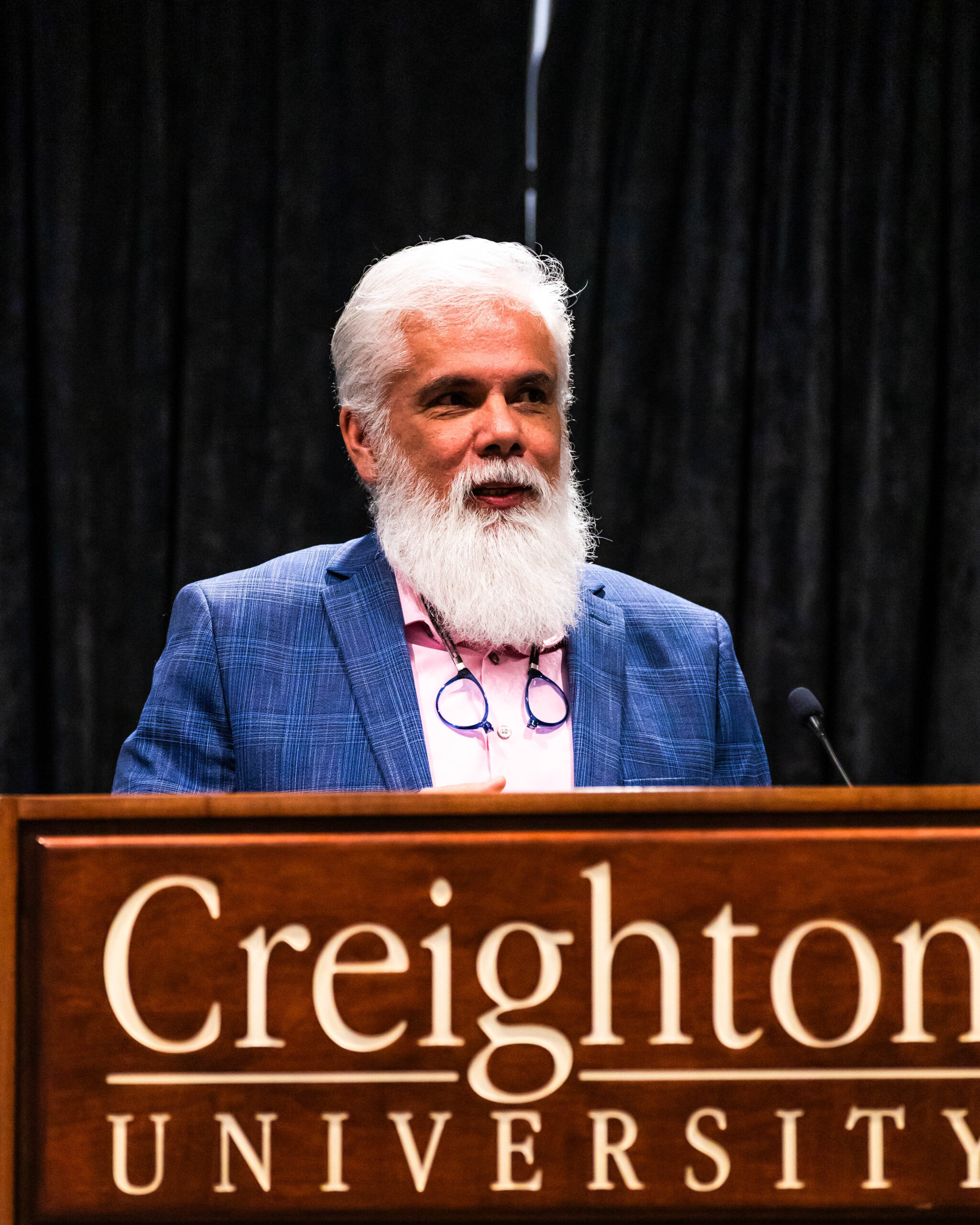Creighton University recently issued a land acknowledgement statement to acknowledge and honor that its Omaha campus lies on Native American land.
The university’s Department of Cultural and Social Studies hosted a symposium in the Skutt Student Center Ballroom to share information about the land acknowledgement.
The official land acknowledgement statement can be found on the Department of Cultural and Social Studies’ website. Campus is situated on ancestral territory of the Umóⁿhoⁿ/Omaha Tribe of Nebraska, the Báxoje/Iowa Tribe of Kansas and Nebraska, the Jiwere-Ñút’achi/Otoe-Missouria Tribe of Nebraska and the P’ᾴ’c’a/Ponca Tribe of Nebraska, according to the statement.
“It [the land acknowledgement] means a lot to me, because I have struggled with my identity, with my culture and with awareness,”College of Arts and Sciences sophomore Vanessa White, an enrolled member of the Ponca Tribe of Nebraska and the president of Creighton’s Native American Association, said. “I feel like I have struggled to make people aware about my culture. It means a lot to me that Creighton has taken that burden on them, a little bit, to educate the community.”
Creighton is one of the first organizations in Nebraska to involve the local Native American community in their land acknowledgement.
“There is a lot of other local organizations or universities that have done a land acknowledgement, which really is not much but a scroll [on a social media post or website],” White said.“Creighton has really wanted to do more than just nominating a bench or writing a piece of paper. They wanted actual involvement... Creighton has done a good job integrating the [tribes’] culture and wanting to know what they [the tribes] think about it, rather than just [publishing] a piece of paper.”
Some Creighton students and faculty visited the Omaha Tribal Council on the Omaha Reservation to start the land acknowledgement process. Some of the council spoke at the event last week.
College of Arts and Sciences seniors Anna Berridge and Lelani Hung; College of Arts and Sciences junior Kevin Diver, Jr.; and White spoke at the event too.
“As a student, I… shared a testimony to my relationship with my culture and how that’s developed and changed, especially being here at Creighton,” White said. “A lot of people spoke about their testimony or their role in establishing the land acknowledgement and how important it was to all of us to do that.”
Some Creighton faculty, including political science professor Richard Witmer, Ph.D., spoke at the event. Witmer said that he has been working on researching contemporary challenges to Indigenous nationhood fornearly 30 years.
“First, let me talk about how political scientists view the idea of a land acknowledgment,” Witmer said in his speech. “We wanted to start a conversation about Indigenous sovereignty and Indigenous rights. I thinkthere’s a lot of misunderstanding about that. Wehave to start a conversation about Indigenous land reparation and Indigenous nationhood… The idea is that once we understand and we can have this discussion, we can work toward restoring Indigenous land. For non-Indigenous people, thishas to move our understanding beyond social construction of Native people.”
White said that the Creighton student body should continue to acknowledge their presence on Native land by educating themselves further.
“I think that the first thing that really should happen… [is that people should] properly educate themselves... A lot of the education that a lot of us have received is misinformed;we can’t blame students for not knowing, but I do think that with this initial step, students should further educate themselves,” White said.
The official land acknowledgement statement also encourages students to get involved in understanding how they can respectfully move forward.
“This acknowledgment asks us to act upon the obligations that we have to past, present and future generations of Native Nations who have and continue to inhabit, learn and live on this land, and to identify these obligations in relationship with the Omaha Tribe on whose ancestral territory Creighton University is situated,” it says.
White said that she is thankful for the work Creighton has done for the land acknowledgement.
“Idefinitely want a lot of gratitude shown towards the social science department that was involved in this, because it definitely was not easy and it did take time, effort and money,” she saidregarding the land acknowledgement project. “These are people who are outside of the [Indigenous] culture and looking in, yet they made sure to do it in a very careful manner that’s respectful.”
